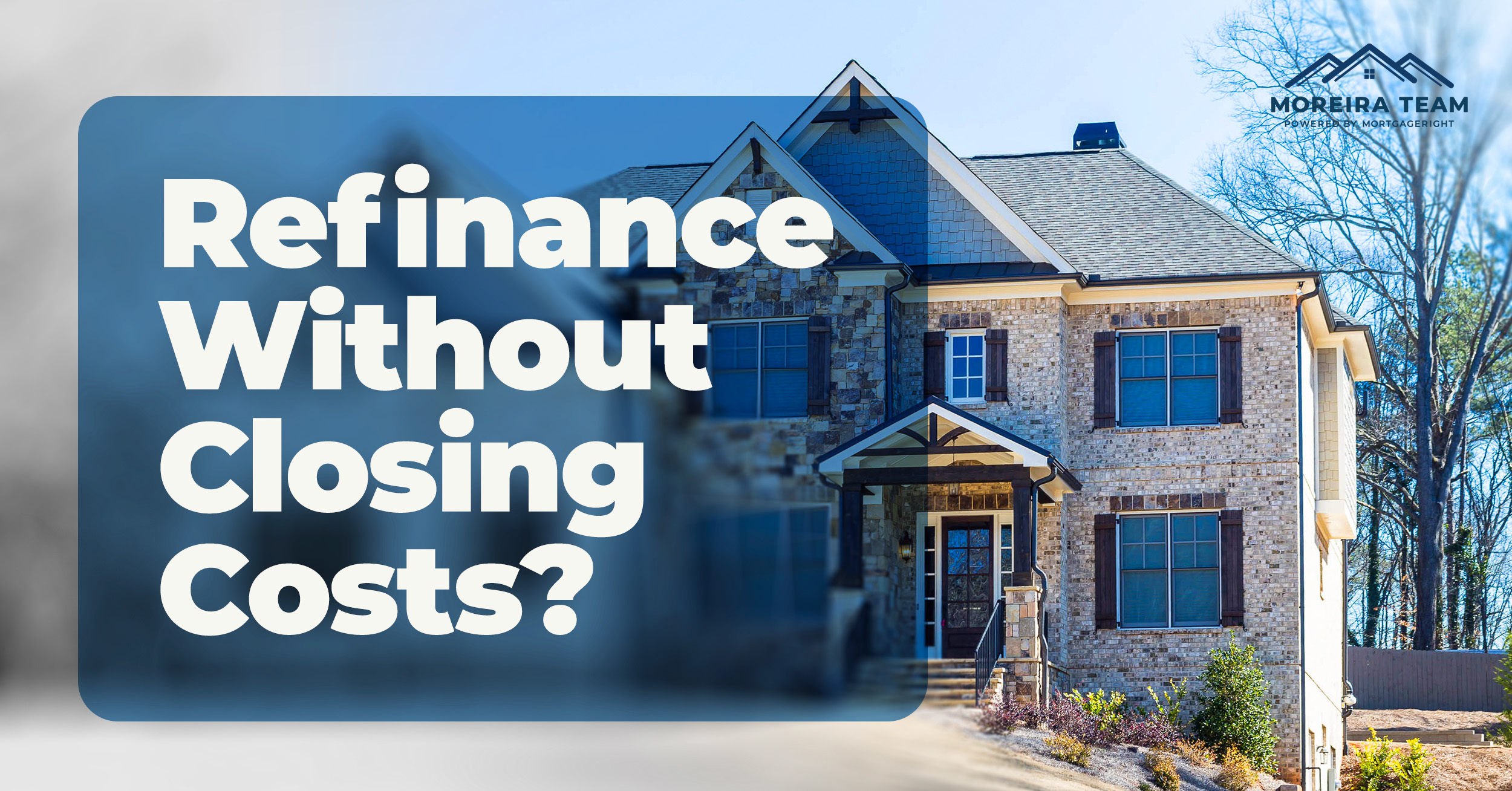
In this article
For many homeowners seeking to save money and consolidate debt, mortgage refinancing can be an attractive option. However, the cost to refinance a mortgage may include fees in the form of closing costs. This can present a stumbling block when you don’t have enough liquid assets due to your equity being tied up in your home.
In these instances, a no-closing cost refinance can help you lock in more favorable loan terms without having to pay out of pocket.
Get your custom refi rates. Start Here! (Jan 13th, 2026)What Is a No-Closing Cost Mortgage Refinance?
Essentially, you don’t pay closing costs once you’re approved for your new loan terms. Instead, the costs you would normally pay as a borrower may be added to your loan principal or affect your interest rate.
However, when interest rates are falling or expected to fall, a no-closing cost refinance is an especially popular option.
When considering your refinance options, keep the current market in mind. Fannie Mae now reports the average 30-year fixed-rate mortgage is at 6.87% as of March 21, and is predicted to end 2024 at 6.4%. However, the Federal Reserve reports several future cuts to mortgage rates will be coming this year.
As a homeowner, you may be wondering how soon you can refinance a mortgage. It’s important to weigh the benefits of a no-closing cost refinance against the current market, as well as your qualifications and finances.
Real refi rates in less than a minute. Start Here! (Jan 13th, 2026)Here’s what you need to know to get started.

Why Refinance?
Refinancing offers a huge savings opportunity for homeowners. Applying for a mortgage refinance can provide an opportunity to consolidate debt, using your home equity to pay off other loans, bills, and expenses, and put you on the path to financial freedom.
Yet, steep closing costs often serve as a barrier to entry. They include costs like appraisal fees, tax and title service fees, and lender origination fees, and can leave a lender footing the bill for potentially thousands of dollars.
Whether you pursue a no-closing-cost loan or another option, there are several reasons to consider mortgage refinance.
Refinancing allows you to secure a lower monthly payment by extending the length of your loan, for those who plan to stay in their current home long-term.
You may opt for a quicker pay-off and a faster path to growing your equity when you refinance your mortgage with a shorter loan term.
Refinancing from an adjustable-rate to a fixed-rate mortgage allows you to ensure your monthly payments and interest rate remain fixed for the life of the loan, helping solidify your financial planning goals and budget for goals like paying off debt or renovating to add equity to your home. Adjustable-rate loans can change with the market, and with a fixed-rate refinance that’s one less variable to worry about.
When interest rates fall, refinancing allows you to take advantage of these lower rates. Since not everyone has cash on hand to cover closing costs, no-closing-cost refinancing may be the best option for some.
Sometimes homeowners may not realize that they qualify for better lending programs, where an FHA mortgage refinance can lower your monthly payment. Moreira Team can help homeowners understand what types of loans and loan programs they qualify for.
See how easy your refinance can be. Start Here! (Jan 13th, 2026)The Benefits of a No Closing Cost Refinance
When thinking about how soon you can refinance a mortgage, consider your options based on factors such as your qualifications, current equity and assets, and housing market trends. However, when you’ve done your research and feel the time is right, there are several key benefits to a no-closing cost mortgage refinance.
Closing costs are 2% to 5% of your loan amount on average. This means that on a loan of $230,000, closing costs can range all the way up to $11,500. Needless to say, this can cause some sticker shock for those who learn about this for the first time. A no-closing cost option can remove this up-front cost and build it into the principal or interest rate of your loan.
Wondering how much you’d be charged in closing costs? Learn more using our closing cost calculator.
Typically, closing costs reflect the legal work and paperwork involved in the process of preparing the loan. These costs can impact how soon you can refinance a mortgage. A few of these items include:
- Reappraisal of your home – In many cases, lenders assess your home’s value to calculate the value of your loan.
- Origination and underwriting fees – This fee is typically calculated as a small percentage of the total loan amount, and it covers setting up and underwriting the loan, and compensating the lending professionals who assist in this process.
- Taxes and tax fees – Closing costs may include certain taxes, insurance, and fees as part of securing your loan.
- Government filing fees – The city, county, or state will need to file your new records, and these fees cover that process.
- Credit report cost – The lender will run a credit report as part of your qualification process and to help calculate your loan terms, and this processing fee is added to your closing cost. A 620 credit score or higher is recommended to secure a favorable loan.
- Survey fees – This fee covers a survey of your property and its boundaries.
- Attorney fees – These fees vary by state and cover the cost of attorneys who prepare the closing documentation for your finalized loan.
As you can see, these fees can quickly pile up. Although a no-closing cost refinance can add these costs to your principal, lenders may let you opt for applying this cost to your interest rate instead. Qualifying for a slightly higher interest rate can keep the principal balance on the loan about the same, providing you with an immediate break-even.
Not only that, but you can potentially refinance again in the future when interest rates are lower.
Check your custom refinance rates. Start Here! (Jan 13th, 2026)
How Soon Can You Refinance a Mortgage? Moreira Team Has Answers
When you’ve considered your options and are ready to refinance, the Moreira Team can help you determine the best loan option for you and your family.
Our team offers a full evaluation of your current situation as well as your lending options. We’ll assess your finances, review your current mortgage payments, determine how debt impacts your monthly payments, and factor your equity into your consolidation. With these factors in mind, we’ll be able to quote you your potential new payment.
The Moreira Team is here to take you step by step through the process of refinancing your home. Even when facing foreclosure or bankruptcy, we’re here to help you find the best plan possible.
So, how soon can you refinance a mortgage? Learn more about how the Moreira Team can help.
The Moreira Team is ready to help you navigate the home-buying and loan process so you can start the next chapter of your life. It’s our mission to maintain transparency so you understand each step. Our team has the experience and resources to find a loan that suits your needs at a competitive rate. Get your custom rate quote today and take the first step toward homeownership.

